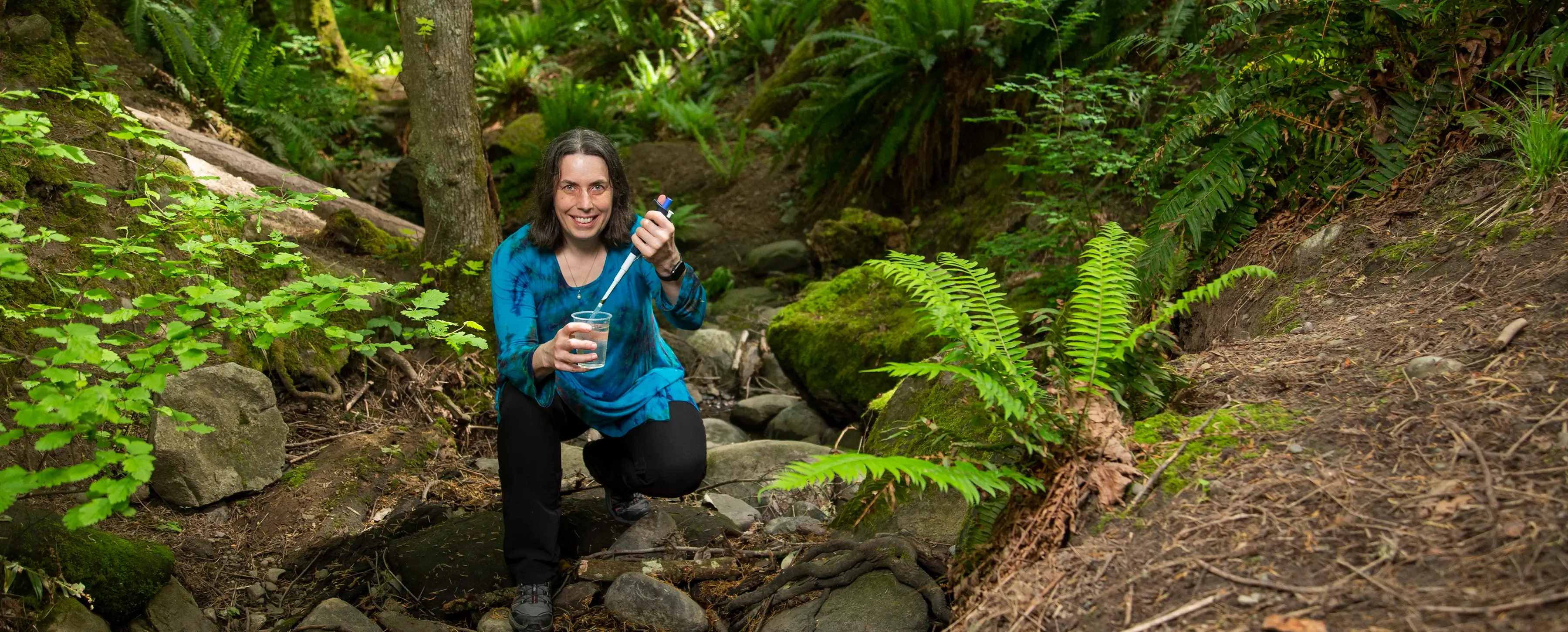It started with a reunion of sorts, a gathering of old friends and colleagues, all scientists. Over dinner—and for some, lunch the next day—they shared stories, knowledge, opinions.
Unlike many gatherings of old friends, however, the climate scientists weren’t engaging in nostalgia, or attempting to remember and recapture a shared past.
Their chatter was about the future—and how bad it could get. Unless…
Leaders want to maintain the status quo
“Today, when we burn a fossil fuel, we are harvesting the sun’s energy stored in a life that lived millions of years ago,” University of Victoria’s Andrew Weaver wrote in a recent opinion piece in The Conversation. “In burning fossil fuels, we release the carbon dioxide that had been drawn out of that ancient atmosphere.”
He continued: “Unless we can figure out a way to speed up the millions of years of geologic process, the idea that we can stop global warming solely through nature-based solutions or ‘planting a tree’ simply isn’t realistic.”
The analysis is headlined “COP29: Only by returning carbon to the ground is net zero truly possible” and is a companion piece to an article published a day earlier in the journal Nature. The journal article—whose 25-strong authors list is a “who’s who” of pioneering climate scientists—calls not for more creative carbon accounting that gives credit for saving forests, but for a global push toward geological net zero. Both state that, worldwide, we must decarbonize our energy systems and commit to negative emissions technologies to even begin to approach the targets for global temperature increases established at the 2016 Paris Agreement.
That both pieces were published to coincide with COP29, the latest edition of the United Nations Conference on Climate Change, is no coincidence, says Weaver, a professor in UVic’s School of Earth and Ocean Sciences, who points out that this year’s COP was held in Azerbaijan, a petro state whose president described oil and gas resources as a “gift of god.”
Weaver is also a former BC MLA and Green Party leader, and says that during his time in politics, “it became very clear to me that government decision makers, politicians and industry are all seeking means and ways of maintaining the status quo but trying to use high moral arguments as to why they are the good guys in this game.”
And it all comes down to math, and timing.
Ancient forests are burning, new forests aren’t the answer
“A series of scientific analyses published in 2007, February 2008, August 2008 and 2009 demonstrated that the stabilization of global mean temperatures required net-zero emissions,” Weaver wrote in The Conversation. “Policymakers interpreted these findings as a green light to emit carbon as long as these were natural ‘offsets.’ This is a gross misinterpretation of the facts of net zero.”
In a recent interview, he criticized politicians’ carbon accounting math, saying, “If you start to play around and get credit for nature-based solutions or existing forests, you cannot actually meet those [temperature increase] targets because you cannot actually stabilize temperatures at any level.
“This lack of honesty, and the charlatans who are suggesting that various solutions like these might actually make all the difference, are not actually helping because what we need to do is decarbonize,” he says. “Nothing else works — nothing else. And not only decarbonize, we need negative emissions… negative emissions in terms of geological storage.
“You are not going to solve global warming by planting trees because of the time-scale issue. In essence, we’re combusting ancient forests now and expecting trees that grow in a hundred years to take the carbon away. It doesn’t work like that.”
He notes that tropical nations with abundant forested land can collect money to preserve forests from developed nations that want to offset carbon outputs “but it doesn’t do anything because it’s not actually solving the problem,” Weaver says. “In fact, it’s worse than doing nothing, in my view—not from a biodiversity perspective, because it’s protecting forests—but it gives people the mistaken notion that we’re somehow taking steps to deal with global warming when we’re actually not.”
It was that topic of net zero that hung over the dinner table in 2023 and led to the publishing of the Nature call to action.
Lunch, dinner and a call to climate action
That morning, Myles Allen—a professor of geosystem science at the University of Oxford—had given a presentation at UVic’s University Club titled “Geological Net Zero: How we will stop fossil fuels from causing global warming.”
In that presentation, he stated: “The phrase ‘geological net zero’ is one that I’m starting to talk about a lot because it’s an essential component to net zero, which is this balance between ongoing production of CO2 from geological sources and restoring carbon to the geosphere through capture and storage.
“That’s the only long-term, durable compensation for generating carbon dioxide from burning fossil fuels,” he continued.
In short, he said: “We need to stop fossil fuels from causing global warming before the world stops using fossil fuels.”
The previous evening, Weaver, Allen, Nathan Gillett of the Canadian Centre for Climate Modelling and Analysis, and Greg Flato, senior research scientist with Environment and Climate Change Canada, gathered at a table at a Victoria rooftop restaurant. They caught up and chatted, seeding the discussion that would continue between Weaver and Allen the next day over lunch. There, Weaver explained the frustration he had felt in the BC legislature while Allen talked about the hindrances he encountered in Europe.
“The seasoned scientists have been doing this for so long that we no longer get bitter and angry,” Weaver says. “We try to figure out strategically how we can advance solutions.”
Allen said in his presentation this change in approach requires “a fundamental rethink” and noted, “If we’re going to stop global warming within 20 years, every country will have had to acknowledge that we need to get to geological net zero.”
Allen took the lead, gathering a roster of researchers. Over 18 months, they wrote, edited, exchanged various versions of the article, often parsing everything from “gravitational settling/precipitation scavenging of aerosols vs. CO2 and other GHGs” to the use of the word “better” in describing a particular strategy.
In November 2024, they published.
Weaver—who calls climate change “the mother of all tragedies of the commons” and says it affects “every person, in every household, in every town and every city, in every province and every country in the world”—says of his climate science colleagues’ call to action: “I think all of us on that team would argue that the solutions to this issue are here. It requires political will, as the technological solutions are available. It requires going all in on decarbonizing energy systems.”
Indeed, before the effort by Weaver, Allen and company to get the word out that led to their recent calls to action, Allen had told those assembled at the University Club, “This is a solvable problem.”
“Things can change fast,” he added. “None of us saw the Paris Agreement coming… The fossil fuel industry has the capacity to do stuff on a colossal scale really fast—you’ve only got to look at the fracking revolution to see that. So, with the right incentives, if enough people start to realize this is what’s going to have to happen, the juggernaut could change direction pretty quickly.”



